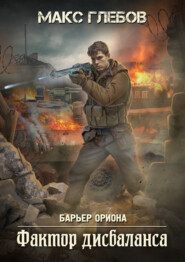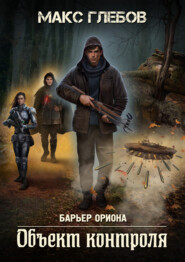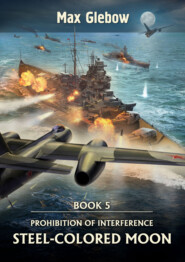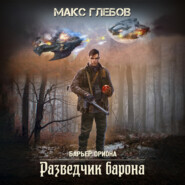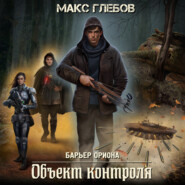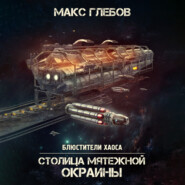По всем вопросам обращайтесь на: info@litportal.ru
(©) 2003-2024.
✖
Prohibition of Interference. Book 4. Asymmetric response
Настройки чтения
Размер шрифта
Высота строк
Поля
Oberleutnant Baer's report on the defeat of the group of Junkers guarded by his fighters caught Richtengden at the Luftwaffe Second Air Fleet's reserve command post. After listening to the cover group commander, the Colonel turned sharply to the officer on duty. He no longer had any doubts – the marksman was on the move.
“Hauptmann, get the special group in the air! The task is to attack Russian anti-aircraft positions south of Vyazma,” Richtengden himself took the sheet with the exact coordinates of the target from the communicator and handed it to the Luftwaffe officer.
Ten minutes later, 12 Messerschmitts and 32 Ju-87 dive bombers were in the air. For the first time on the Eastern Front, they carried not only high-explosive bombs but also chemical ones in their bomb chambers. The Colonel was well aware that right now he was committing the irreversible act that could change the entire balance of power in this war. Of course, his plan was coordinated at the very top, but it was he who came up with the idea and the decisive order also came out of his mouth, which means that he, too, will be responsible for the consequences.
Seven minutes passed in tense anticipation, which was suddenly interrupted by the sharp buzzer of the telephone.
“Herr Oberst, the Headquarters of the Eighth Air Corps is on the line.”
“I'm listening,” said the Colonel into the receiver.
“Herr Oberst, Hauptmann Meyer reports. The group of Heinkels, escorted by my squadron, was hit by Russian 85 mm anti-aircraft guns, lost more than half of its planes and was scattered. According to the order, I have to report such cases immediately…”
“I'm already aware of that, Hauptmann. Those anti-aircraft guns near Vyazma will soon be finished.”
“Excuse me, Herr Oberst, did you say near Vyazma? My air group came under Russian fire northeast of Rzhev.”
“Of Rzhev? Are you sure, Hauptmann?”
“We managed to spot the positions of the anti-aircraft guns. They are about 30 kilometers from the outer front of the encirclement. I'm ready to give you the exact coordinates.”
“Thank you, Hauptmann,” said Richtengden in a colorless voice, “the liaison officer on duty will take your coordinates.”
The Colonel pondered the information for about 15 seconds and then turned his gaze to the Luftwaffe officer.
“I need a connection with the special group. It's urgent! They must return to the airfield immediately!”
“There is no communication, Herr Oberst,” the officer on duty reported after a minute, “the airwaves are again clogged with these anomalous interference…”
The Hauptmann had no time to finish – he was interrupted by another call signal. Richtengden slowly turned to the communicator.
“Herr Oberst, this is Oberleutnant Eichenwald, Third Fighter Squadron, Eighth Air Corps.”
The Colonel silently took the receiver, already realizing what he was about to hear.
* * *
The "Redoubt" teams were unable to detect nearly five dozen German planes taking off from two nearby airfields, but the computer immediately drew my attention to something out of the usual pattern of enemy activity.
This new air group consisted exclusively of fighters and dive bombers. It did not have a single transport aircraft, hence, it had to perform tasks far removed from those of supplying the encircled German armies.
After a couple of minutes, when the enemy planes finally came together and lay on a course for Vyazma, their intentions became crystal clear to me. Unlike the transports, the dive bombers kept low, trying to stay close to the ground to reduce the chance of detection by radars and air traffic control stations.
“"Viper 2", this is "Mole". A group of dive-bombers covered by Messerschmitts is approaching you from the southwest. 30 to 40 Ju-87s. Flying time 12 minutes.”
“"Mole", this is "Viper 2". We got the information. Awaiting instructions.”
“You will not have time to change positions – you will be caught on the march. Prepare to repel the attack. 52-K cannons, take data for barrage fire. Small-caliber guns open fire at visual contact with the enemy.”
There was nothing else I could do to help the anti-aircraft gunners. My command post was almost a hundred kilometers away from their positions, and I could only watch the unfolding battle from orbit with clenched fists.
This group of dive bombers was clearly set up beforehand by the enemy. Apparently, the Germans again managed to predict my actions to some extent. In any case, they were clearly preparing in advance to foil the attempt to destroy the air bridge to the Moscow Pocket. But have they chosen the right means to do so? The decision to send dive bombers to attack an air defense area that is loaded with automatic cannons is quite controversial. There will inevitably be casualties on both sides, and they will be significant losses. Judging by the way the Germans approach the target, the Luftwaffe have not assembled a strike group of rookies, and I do not understand why the Germans are willing to risk their best pilots so much.
I didn't count much on the effectiveness of the 85 mm guns barrage fire. Nevertheless, as soon as the German planes crossed the invisible 15-kilometer line to the anti-aircraft positions, the 52-K guns sent 16 fragmentation shells toward them in a volley, to at least disrupt the formation and make the enemy pilots nervous.
In the three minutes it took the German planes to reach the anti-aircraft guns, the battery managed to make two dozen salvos. Theoretically, they could have fired faster, but the Germans were changing course, maneuvering, and this required the anti-aircraft gunners to constantly adjust their sights. To my surprise, their efforts were not wasted – two dive-bombers crashed into the forest and disappeared in the fiery flashes of detonated bombs.
The Messerschmitts were the first to attack. 12 planes, armed as fighter-bombers, swiftly jumped out from behind the trees of the nearest grove and dropped dozens of small fragmentation bombs on the anti-aircraft positions. However, the appearance of the enemy did not come as a surprise to the automatic gun crews; they had received advance warning of the impending attack, as well as information about the direction from which the attack was expected to come.
Fire trails stretched toward the Messerschmitts, they immediately crossed two planes and forced the other five fighters off their combat course. German planes flew low over gun positions, firing machine guns and dropping bombs. Shrapnel howled through the air and collected its deadly tribute, but the cannons were in the trenches, and this partly reduced the effectiveness of the bombardment. The barrels of the guns turned after the fighters coming out of the attack. One plane exploded in mid-air, two others were damaged and had to withdraw from the battle.
The attack by the Messerschmitts was only a prelude. Almost immediately after them dive bombers appeared over the anti-aircraft positions. They had to gain altitude first to approach the targets, which took some time, so their strike followed later than the fighters' attack. But now three dozen Junkers were falling almost steeply on the heads of the anti-aircraft gunners, and there was a terrifying howl in the air.
Some dive-bombers exploded in midair, tumbling down on the anti-aircraft trenches without dropping their deadly cargo, but most of the bombers still managed to break through the heavy fire and drop their bombs.
The density of anti-aircraft fire had decreased noticeably, but the air defense positioning area was still far from being destroyed when I saw something, that made me clench my fists to the point of pain. The computer sounded an alarm and illuminated the clouds of whitish fog rapidly spreading out from the bomb sites with a flashing orange light. On the left, at the edge of my field of vision, a chemical formula and a brief note about the gas used by the Germans popped up. It was something no country in the world had ever used before. No mustard gas, cyanogen chloride, lewisite, phosgene or adamsite. Sarin! It is a terrible nerve gas, which affects the nervous system, makes muscles involuntarily contract, causing respiratory arrest and a total loss of control over all bodily functions.
Where the clouds of gas spread over the ground, the fire of the anti-aircraft guns that had survived the bombs subsided instantly, and by the time the remaining 19 dive bombers began their second approach to their targets, only the individual small-caliber guns were firing on them, those had not yet been reached by the gas clouds.
“"Mole", this is "Viper 2". We are being attacked by unknown war gases! We've lost mid-caliber gun crews. The sticky slurry…”
Four minutes into the attack, fire from the ground ceased completely. In the freezing no-wind conditions, the entire position of the anti-aircraft gunners was covered with swirling clouds of poisonous fog that drifted into the trenches and dugouts, leaving no chance of survival for anyone who fell into the zone of chemical contamination.
“"Viper 2", respond to the "Mole"!” The on-duty communicator kept calling the anti-aircraft gunners.
“Stand down, Staff Sergeant, they won't answer,” I stopped the radio operator in a hoarse voice, “I need a connection with the General Staff. Now!”
It didn't work immediately, but about ten minutes later I heard Shaposhnikov's concerned voice on the phone: “Report, Lieutenant Colonel.”
“Comrade Marshal, what I warned you about happened. The Viper 2 position area was attacked by dive bombers armed with chemical bombs. I'm afraid no one survived there. Apparently, this is something new. Gas masks don't help much, although I don't think many people had time to put them on.”
Shaposhnikov was silent, and I tried to answer myself the simple question, "why did the Germans hit the anti-aircraft gunners with toxic chemicals?"
There was only one answer – they really wanted to get me, and if I was really in position with the 85 mm guns, they probably would have succeeded. Even my body could not cope with such a dose of nerve poison, especially in a situation where there was no one to get me out of the contamination zone. By using sarin gas, the enemy revealed their plans ahead of time, but apparently the Germans thought the goal was worth it.
Chapter 3
“How did the British and USA ambassadors respond to our appeal?”
“They expressed great concern, Comrade Stalin,” Soviet Foreign Minister Molotov grimaced irritably, “they promised to tell us the position of London and Washington as soon as possible. There seems to be little hope for the Americans. After the Japanese hit Pearl Harbor and the Imperial Army landed in the Philippines, they are, to put it mildly, not interested in us. Apparently, it was feared that once the war with the Samurai had begun, Germany would declare war on them, but so far this has not happened, and Roosevelt certainly will not want to provoke Hitler[1 - In real history, Germany declared war on the United States on December 11, 1941 – almost immediately after the Japanese attack on Pearl Harbor and the landing of Japanese troops in the Philippines. In the reality of the book the Wehrmacht found itself in a much more difficult situation on the Eastern Front, and Hitler refrained from such a rash move.].”
“With the current situation at Moscow and the beginning of the British offensive in North Africa, all Hitler needed was a war with the United States,” Stalin's voice sounded irritated. “Roosevelt's apprehension is misguided, though it may only be an excuse for denying us effective help. And what do you, Comrade Molotov, think about the prospects of Britain entering chemical warfare?”
“It's more complicated here, Comrade Stalin. The Germans lost the air battle for Britain, but it is unlikely that Churchill would want to expose his cities to the risk of chemical bombing. By drawing off the tank units of the African Corps, we have greatly relieved the situation of the British in Egypt and Libya, and now Churchill is in a hurry to turn the course of the war in Africa in his favor. He does not need any new problems, especially in view of the Japanese attack on the port of Hong Kong and the emergence of a real threat to Singapore and all of British Malaya. On December 10, the British fleet lost in the South China Sea the battleship Prince of Wales and the battlecruiser Repulse. This victory cost the Japanese only three planes, so the British and Americans have enough to worry about. It is possible that they can ask us for help themselves[2 - After Japan's sudden attack on the United States, Roosevelt did ask Stalin for help in fighting the Japanese aggressor. The first conversation between the U.S. president and the Soviet ambassador took place in Washington the day after the Japanese struck at Pearl Harbor. Roosevelt wanted the USSR to allow the U.S. to conduct air strikes against the Japanese metropolis from Soviet territory. However, this would have meant a violation of the neutrality pact signed in April 1941 between the Soviet Union and Japan and would inevitably have led to a state of war between the USSR and Japan. Stalin was forced to refuse Roosevelt, citing the aforementioned pact and the fact that the USSR was currently engaged in a heavy war with Germany, which required the concentration of all forces and means. Having received a negative answer, Roosevelt told the Soviet ambassador that he regretted such a decision, but if he were the Soviet leader, he would have done the same.] – now they are in a situation similar to ours in June.”
The Chief nodded slowly and switched to another topic:
“After the gas attack on anti-aircraft positions near Vyazma, are there any other facts of the use of chemical weapons by the Germans?”
“Hauptmann, get the special group in the air! The task is to attack Russian anti-aircraft positions south of Vyazma,” Richtengden himself took the sheet with the exact coordinates of the target from the communicator and handed it to the Luftwaffe officer.
Ten minutes later, 12 Messerschmitts and 32 Ju-87 dive bombers were in the air. For the first time on the Eastern Front, they carried not only high-explosive bombs but also chemical ones in their bomb chambers. The Colonel was well aware that right now he was committing the irreversible act that could change the entire balance of power in this war. Of course, his plan was coordinated at the very top, but it was he who came up with the idea and the decisive order also came out of his mouth, which means that he, too, will be responsible for the consequences.
Seven minutes passed in tense anticipation, which was suddenly interrupted by the sharp buzzer of the telephone.
“Herr Oberst, the Headquarters of the Eighth Air Corps is on the line.”
“I'm listening,” said the Colonel into the receiver.
“Herr Oberst, Hauptmann Meyer reports. The group of Heinkels, escorted by my squadron, was hit by Russian 85 mm anti-aircraft guns, lost more than half of its planes and was scattered. According to the order, I have to report such cases immediately…”
“I'm already aware of that, Hauptmann. Those anti-aircraft guns near Vyazma will soon be finished.”
“Excuse me, Herr Oberst, did you say near Vyazma? My air group came under Russian fire northeast of Rzhev.”
“Of Rzhev? Are you sure, Hauptmann?”
“We managed to spot the positions of the anti-aircraft guns. They are about 30 kilometers from the outer front of the encirclement. I'm ready to give you the exact coordinates.”
“Thank you, Hauptmann,” said Richtengden in a colorless voice, “the liaison officer on duty will take your coordinates.”
The Colonel pondered the information for about 15 seconds and then turned his gaze to the Luftwaffe officer.
“I need a connection with the special group. It's urgent! They must return to the airfield immediately!”
“There is no communication, Herr Oberst,” the officer on duty reported after a minute, “the airwaves are again clogged with these anomalous interference…”
The Hauptmann had no time to finish – he was interrupted by another call signal. Richtengden slowly turned to the communicator.
“Herr Oberst, this is Oberleutnant Eichenwald, Third Fighter Squadron, Eighth Air Corps.”
The Colonel silently took the receiver, already realizing what he was about to hear.
* * *
The "Redoubt" teams were unable to detect nearly five dozen German planes taking off from two nearby airfields, but the computer immediately drew my attention to something out of the usual pattern of enemy activity.
This new air group consisted exclusively of fighters and dive bombers. It did not have a single transport aircraft, hence, it had to perform tasks far removed from those of supplying the encircled German armies.
After a couple of minutes, when the enemy planes finally came together and lay on a course for Vyazma, their intentions became crystal clear to me. Unlike the transports, the dive bombers kept low, trying to stay close to the ground to reduce the chance of detection by radars and air traffic control stations.
“"Viper 2", this is "Mole". A group of dive-bombers covered by Messerschmitts is approaching you from the southwest. 30 to 40 Ju-87s. Flying time 12 minutes.”
“"Mole", this is "Viper 2". We got the information. Awaiting instructions.”
“You will not have time to change positions – you will be caught on the march. Prepare to repel the attack. 52-K cannons, take data for barrage fire. Small-caliber guns open fire at visual contact with the enemy.”
There was nothing else I could do to help the anti-aircraft gunners. My command post was almost a hundred kilometers away from their positions, and I could only watch the unfolding battle from orbit with clenched fists.
This group of dive bombers was clearly set up beforehand by the enemy. Apparently, the Germans again managed to predict my actions to some extent. In any case, they were clearly preparing in advance to foil the attempt to destroy the air bridge to the Moscow Pocket. But have they chosen the right means to do so? The decision to send dive bombers to attack an air defense area that is loaded with automatic cannons is quite controversial. There will inevitably be casualties on both sides, and they will be significant losses. Judging by the way the Germans approach the target, the Luftwaffe have not assembled a strike group of rookies, and I do not understand why the Germans are willing to risk their best pilots so much.
I didn't count much on the effectiveness of the 85 mm guns barrage fire. Nevertheless, as soon as the German planes crossed the invisible 15-kilometer line to the anti-aircraft positions, the 52-K guns sent 16 fragmentation shells toward them in a volley, to at least disrupt the formation and make the enemy pilots nervous.
In the three minutes it took the German planes to reach the anti-aircraft guns, the battery managed to make two dozen salvos. Theoretically, they could have fired faster, but the Germans were changing course, maneuvering, and this required the anti-aircraft gunners to constantly adjust their sights. To my surprise, their efforts were not wasted – two dive-bombers crashed into the forest and disappeared in the fiery flashes of detonated bombs.
The Messerschmitts were the first to attack. 12 planes, armed as fighter-bombers, swiftly jumped out from behind the trees of the nearest grove and dropped dozens of small fragmentation bombs on the anti-aircraft positions. However, the appearance of the enemy did not come as a surprise to the automatic gun crews; they had received advance warning of the impending attack, as well as information about the direction from which the attack was expected to come.
Fire trails stretched toward the Messerschmitts, they immediately crossed two planes and forced the other five fighters off their combat course. German planes flew low over gun positions, firing machine guns and dropping bombs. Shrapnel howled through the air and collected its deadly tribute, but the cannons were in the trenches, and this partly reduced the effectiveness of the bombardment. The barrels of the guns turned after the fighters coming out of the attack. One plane exploded in mid-air, two others were damaged and had to withdraw from the battle.
The attack by the Messerschmitts was only a prelude. Almost immediately after them dive bombers appeared over the anti-aircraft positions. They had to gain altitude first to approach the targets, which took some time, so their strike followed later than the fighters' attack. But now three dozen Junkers were falling almost steeply on the heads of the anti-aircraft gunners, and there was a terrifying howl in the air.
Some dive-bombers exploded in midair, tumbling down on the anti-aircraft trenches without dropping their deadly cargo, but most of the bombers still managed to break through the heavy fire and drop their bombs.
The density of anti-aircraft fire had decreased noticeably, but the air defense positioning area was still far from being destroyed when I saw something, that made me clench my fists to the point of pain. The computer sounded an alarm and illuminated the clouds of whitish fog rapidly spreading out from the bomb sites with a flashing orange light. On the left, at the edge of my field of vision, a chemical formula and a brief note about the gas used by the Germans popped up. It was something no country in the world had ever used before. No mustard gas, cyanogen chloride, lewisite, phosgene or adamsite. Sarin! It is a terrible nerve gas, which affects the nervous system, makes muscles involuntarily contract, causing respiratory arrest and a total loss of control over all bodily functions.
Where the clouds of gas spread over the ground, the fire of the anti-aircraft guns that had survived the bombs subsided instantly, and by the time the remaining 19 dive bombers began their second approach to their targets, only the individual small-caliber guns were firing on them, those had not yet been reached by the gas clouds.
“"Mole", this is "Viper 2". We are being attacked by unknown war gases! We've lost mid-caliber gun crews. The sticky slurry…”
Four minutes into the attack, fire from the ground ceased completely. In the freezing no-wind conditions, the entire position of the anti-aircraft gunners was covered with swirling clouds of poisonous fog that drifted into the trenches and dugouts, leaving no chance of survival for anyone who fell into the zone of chemical contamination.
“"Viper 2", respond to the "Mole"!” The on-duty communicator kept calling the anti-aircraft gunners.
“Stand down, Staff Sergeant, they won't answer,” I stopped the radio operator in a hoarse voice, “I need a connection with the General Staff. Now!”
It didn't work immediately, but about ten minutes later I heard Shaposhnikov's concerned voice on the phone: “Report, Lieutenant Colonel.”
“Comrade Marshal, what I warned you about happened. The Viper 2 position area was attacked by dive bombers armed with chemical bombs. I'm afraid no one survived there. Apparently, this is something new. Gas masks don't help much, although I don't think many people had time to put them on.”
Shaposhnikov was silent, and I tried to answer myself the simple question, "why did the Germans hit the anti-aircraft gunners with toxic chemicals?"
There was only one answer – they really wanted to get me, and if I was really in position with the 85 mm guns, they probably would have succeeded. Even my body could not cope with such a dose of nerve poison, especially in a situation where there was no one to get me out of the contamination zone. By using sarin gas, the enemy revealed their plans ahead of time, but apparently the Germans thought the goal was worth it.
Chapter 3
“How did the British and USA ambassadors respond to our appeal?”
“They expressed great concern, Comrade Stalin,” Soviet Foreign Minister Molotov grimaced irritably, “they promised to tell us the position of London and Washington as soon as possible. There seems to be little hope for the Americans. After the Japanese hit Pearl Harbor and the Imperial Army landed in the Philippines, they are, to put it mildly, not interested in us. Apparently, it was feared that once the war with the Samurai had begun, Germany would declare war on them, but so far this has not happened, and Roosevelt certainly will not want to provoke Hitler[1 - In real history, Germany declared war on the United States on December 11, 1941 – almost immediately after the Japanese attack on Pearl Harbor and the landing of Japanese troops in the Philippines. In the reality of the book the Wehrmacht found itself in a much more difficult situation on the Eastern Front, and Hitler refrained from such a rash move.].”
“With the current situation at Moscow and the beginning of the British offensive in North Africa, all Hitler needed was a war with the United States,” Stalin's voice sounded irritated. “Roosevelt's apprehension is misguided, though it may only be an excuse for denying us effective help. And what do you, Comrade Molotov, think about the prospects of Britain entering chemical warfare?”
“It's more complicated here, Comrade Stalin. The Germans lost the air battle for Britain, but it is unlikely that Churchill would want to expose his cities to the risk of chemical bombing. By drawing off the tank units of the African Corps, we have greatly relieved the situation of the British in Egypt and Libya, and now Churchill is in a hurry to turn the course of the war in Africa in his favor. He does not need any new problems, especially in view of the Japanese attack on the port of Hong Kong and the emergence of a real threat to Singapore and all of British Malaya. On December 10, the British fleet lost in the South China Sea the battleship Prince of Wales and the battlecruiser Repulse. This victory cost the Japanese only three planes, so the British and Americans have enough to worry about. It is possible that they can ask us for help themselves[2 - After Japan's sudden attack on the United States, Roosevelt did ask Stalin for help in fighting the Japanese aggressor. The first conversation between the U.S. president and the Soviet ambassador took place in Washington the day after the Japanese struck at Pearl Harbor. Roosevelt wanted the USSR to allow the U.S. to conduct air strikes against the Japanese metropolis from Soviet territory. However, this would have meant a violation of the neutrality pact signed in April 1941 between the Soviet Union and Japan and would inevitably have led to a state of war between the USSR and Japan. Stalin was forced to refuse Roosevelt, citing the aforementioned pact and the fact that the USSR was currently engaged in a heavy war with Germany, which required the concentration of all forces and means. Having received a negative answer, Roosevelt told the Soviet ambassador that he regretted such a decision, but if he were the Soviet leader, he would have done the same.] – now they are in a situation similar to ours in June.”
The Chief nodded slowly and switched to another topic:
“After the gas attack on anti-aircraft positions near Vyazma, are there any other facts of the use of chemical weapons by the Germans?”







